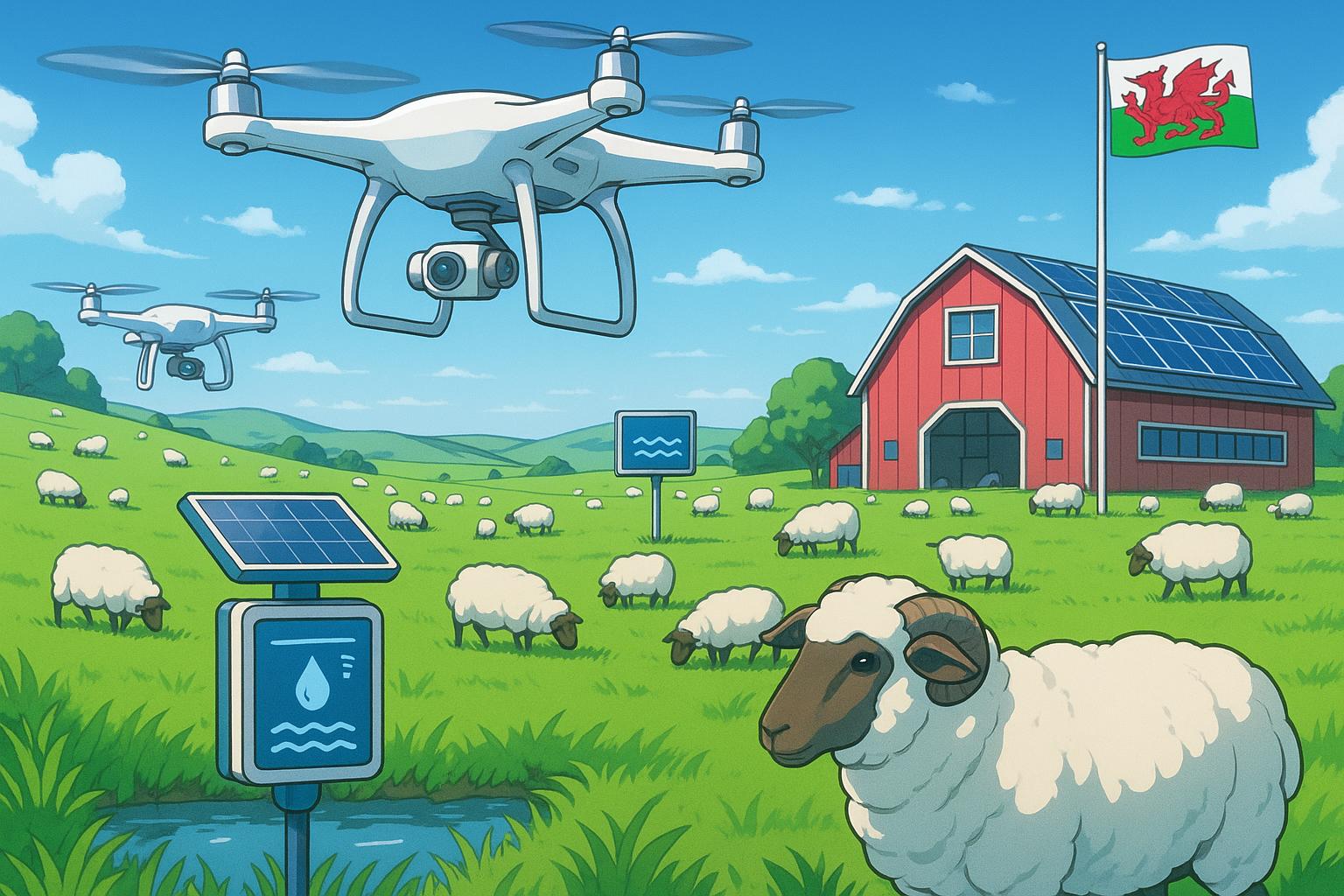The landscape of agriculture is evolving rapidly, particularly in Wales, where innovation is increasingly intertwined with traditional farming practices. As a steward of 400 acres on the Ceredigion coast, I manage 800 breeding ewes while also grazing dairy cattle. Like many farmers in this region, I face a myriad of challenges including rugged terrain, unpredictable weather patterns, and dwindling water resources. However, these challenges present opportunities for technological innovation that can significantly enhance sustainability and productivity on the farm.
In 2023, I implemented a LoRaWAN-based system specifically designed to monitor and optimise our water usage. This technology enables us to track the flow from our spring—located at the bottom of the farm—up to the reservoir that supplies drinking troughs. Historically, low water supply during dry spells has strained our operations, often leading to alarming situations where livestock were forced to drink from less-than-ideal sources, raising significant animal welfare concerns. The integration of LoRaWAN technology, initially developed for smart glasshouses at Aberystwyth University under the guidance of agritech expert Jason Brook, has revolutionised our approach to water management. By monitoring water levels and flow rates in real-time, we can now detect leaks immediately, drastically reducing potential losses and promoting animal health.
The benefits extend beyond water conservation; we are also witnessing a decrease in the need for Fluke treatments due to our sheep no longer accessing contaminated waters. The insights garnered from this system have been transformative, providing us with two years of data that informs our decision-making. Armed with this information, we are now contemplating the expansion of our flock and exploring rotational grazing techniques, which previously seemed impractical without reliable water sources.
While the set-up of the LoRaWAN system was neither complex nor excessively costly, its impact has been profound. Subsequently, I have taken on a mentorship role through Farming Connect, assisting fellow farmers in adopting similar technologies. Such knowledge-sharing initiatives are crucial, for despite the unique circumstances each farm faces, the foundational principles of these technologies are highly adaptable.
Looking to the future, my excitement mounts at the potential applications of drones and artificial intelligence in agriculture. We are beginning to investigate how drones can monitor grass growth and soil health, predict yields, and refine grazing strategies. The fusion of drone technology with AI is poised to offer unparalleled insights into pasture quality—insights that would typically require time-consuming manual assessments. As these technologies become increasingly affordable, their potential to transform farming practices in the next five to ten years appears boundless.
The success of these innovations is underpinned by robust infrastructure and support mechanisms within Wales. The availability of LoRaWAN coverage has been bolstered by significant Welsh Government investment, aligning with the objectives of the Agri-Tech Action Plan. This plan aims to enhance productivity in agriculture through the adoption of technology while focusing on environmental stewardship and educational initiatives. Collaborative efforts involving stakeholders from various sectors—including agritech professionals, agricultural practitioners, and academia—are essential to advancing the capabilities of Welsh agriculture.
Support programmes like Farming Connect have particularly been pivotal, with a new £22.9 million initiative designed to aid farmers as they adapt to the Sustainable Farming Scheme. This initiative has already reached over 26,500 individuals, equipping them with vital knowledge and skills to navigate the complexities of modern agriculture. Recent courses launched by Farming Connect cover a range of topics, from fertiliser usage to digital marketing, emphasising a holistic approach to improving agricultural skills.
In a time when sustainability in agriculture is paramount, it's crucial to recognise that solutions are not one-size-fits-all. Understanding and adapting to one's unique environmental context is vital for long-term success. There is a burgeoning interest in collaboration—whether between farms, across sectors, or in partnerships with researchers and advisors. This collective effort is key to fostering meaningful progress within the agricultural community in Wales. I remain optimistic, not just for my own farm, but for the broader farming landscape as we navigate the future together.
Reference Map:
Source: Noah Wire Services
